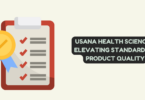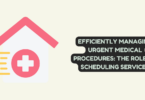
Accident
Atlanta, a city known for its vibrant culture and bustling highways, has faced challenges due to a rise in truck accident rates in recent years. These accidents not only jeopardize lives but also disrupt the flow of goods and general traffic. Recognizing the pressing need for change, the city has undertaken several initiatives to enhance truck safety and mitigate these concerns.
Prepared by Embry Law Truck Accidents, this article highlights some of the primary measures Atlanta has put in place in its bid to create safer roads for all.
1. Enhanced Regulatory Oversight
The city has bolstered its regulatory mechanisms, ensuring trucking companies adhere strictly to safety standards, such as regular vehicle maintenance checks and compliance with weight limits.
2. Driver Training Programs
Recognizing that well-trained drivers are crucial for safety, Atlanta has promoted and supported advanced training programs. These programs emphasize defensive driving, fatigue management, and understanding of blind spots.
3. Infrastructure Improvements
Investments have been made to widen roads, improve signage, and create designated truck lanes on some routes. This not only facilitates smoother traffic flow but also reduces the chances of collisions.
4. Technological Integration
Several trucks now come equipped with advanced technologies like automatic braking systems, lane departure warnings, and drowsiness detection systems. The city encourages trucking companies to adopt these technologies for better safety outcomes.
5. Strict Enforcement of Rest Periods
Driver fatigue is a leading cause of truck accidents. Atlanta has enforced strict rest period guidelines, ensuring drivers take necessary breaks and don’t exceed maximum driving hours.
6. Public Awareness Campaigns
Efforts have been made to educate the public about sharing the road safely with trucks. Campaigns focus on understanding truck blind spots, maintaining safe following distances, and being cautious while overtaking.
7. Collaboration with Trucking Associations
By collaborating with local trucking associations, the city has gained insights into challenges faced by truck drivers and companies. This has enabled a more tailored approach to problem-solving.
8. Regular Inspection Checkpoints
The city has set up regular inspection checkpoints to ensure trucks adhere to safety norms, weight guidelines, and other regulations. Such checkpoints act as a deterrent to any potential violations.
9. Crash Analysis and Data-Driven Decisions
Atlanta has emphasized the collection and analysis of crash data. By understanding accident hotspots, patterns, and common causes, the city can deploy resources more effectively.
10. Feedback and Continuous Improvement
There’s an open channel for drivers, trucking companies, and the general public to provide feedback on safety issues. This feedback loop ensures that the city remains agile in its approach and introduces new measures based on changing needs.
As Atlanta grapples with the challenges posed by rising truck accident rates, it’s clear that a multifaceted approach is essential. From harnessing technology to enhancing driver training, the city is leaving no stone unturned in its quest for safer roads. While the journey ahead may be long, these initiatives offer hope that with collective effort, Atlanta can significantly reduce truck-related accidents and ensure safer travel for all its residents.






